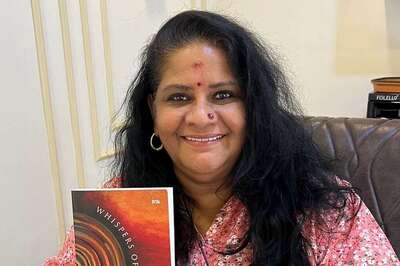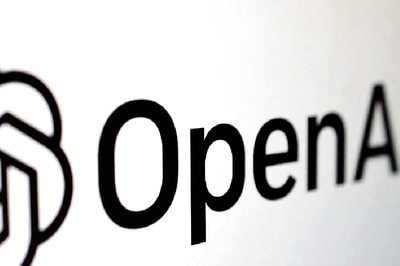
views
With India embracing itself for the 17th general elections, the ruling government, as part of its campaign promises, reiterated its commitment to abrogate Article 35A of the Indian Constitution — a contentious provision under the Fundamental Rights Chapter that empowers the Legislature of Jammu and Kashmir to define “permanent residents” and confer special benefits on them in specified spheres to the absolute exclusion of citizens who are not permanent residents.
The category “permanent residents” has been defined under Section 6 of the Jammu and Kashmir Constitution. Although alive on the statute book for more than 65 years, Article 35A has gained traction in legal and political circles only recently.
The absence of an extensive post-constitutional discourse on the provision is principally attributable to its emplacement under the Indian Constitution.
Added as a surreptitious appendix to the Constitution rather than being a part of its main provisions, Article 35A became part of the Indian Constitution through the legal framework provided under Article 370 of the Indian Constitution.
However, judicial interventions made by several non-governmental organisations and victim groups of Article 35A since 2014 has given birth to a hotly contested debate on its (un)constitutionality.
Until now, most legal scholars who have commented on Article 35A have merely dealt with its consistency or otherwise with the equal treatment clause under the Indian Constitution.
These discussions have either disregarded or failed to consider other issues of constitutional importance emanating from the provision.
One issue pertaining to Article 35A that has eluded academic scrutiny, so far, is the delegation of the constituent power of Parliament to amend the Constitution.
Not apparent on a plain reading of Article 35A, the delegation of amending power to the State Legislature under the said provision becomes clear when the primary purpose of the article is considered.
To extract the relevant portion for discussion under this post, Article 35A reads as follows:
Saving of laws with respect to permanent residents and their rights. Notwithstanding anything contained in this Constitution, no existing law in force in the State of Jammu and Kashmir, and no law hereafter enacted by the Legislature of the State,
(a) defining the classes of persons who are, or shall be permanent residents of the State of Jammu and Kashmir; or
(b) conferring on such permanent residents any special rights and privileges or imposing upon other persons any restrictions as respects-
…………………
shall be void on the ground that it is inconsistent with or takes away or abridges any rights conferred on the other citizens of India by any provision of this Part.
From the language of the provision, it can be asserted that Article 35A precludes a judicial declaration that laws mentioned therein are void because they usurp, partially or completely, fundamental rights guaranteed to citizens other than permanent residents.
One may recall at this stage, the well-entrenched doctrine of judicial review recognised by the US Supreme Court in Marbury v. Madison 5 US 137 (1803) that empowers constitutional courts to declare legislations repugnant to the Constitution as void and unconstitutional.
With Indian courts equally endowed with such powers of review, granting judicial immunity to legislations under Article 35A, which take away fundamental rights clothes the State Legislature with an omnipotent power to override these rights without facing any constitutional fire.
In effect, it imbues the Legislature with the constituent power to amend fundamental rights guaranteed to Indian citizens.
With the constituent power to amend the Constitution being exclusively vested in Parliament under Article 368, grant of such power to the Legislature amounts to a delegation of such power, which is impermissible under law.
Under Article 368, the only body recognised to effectuate an amendment to the Constitution is the Indian Parliament in the manner and form prescribed therein.
Now, once the State Legislature enacts a law pursuant to its powers under Article 35A, fundamental rights of Indian citizens cease to have any effect — as their enforcement is invariably prohibited.
In other words, the body amending the fundamental rights is the State Legislature and not the Indian Parliament without adopting the procedure mentioned under Article 368.
As such, law of the nature mentioned under Article 35A would have been passed not in the form prescribed by Article 368 i.e. by a two-third majority of Parliament, but by another body i.e. State Legislature.
Such a delegation was neither envisaged not intended by the founding fathers of the Indian Constitution.
Article 368 of the Indian Constitution is an implied prohibition on such delegation. Thus, permitting the State Legislature to amend the Constitution through ordinary laws defies constitutional logic.
The delegation, as discussed above, to the State Legislature not only makes serious inroads into the powers reserved to Parliament under Article 368 but also transfers “fundamental rights” as field of legislative activity to Jammu and Kashmir.
Such a scheme was never visualised under the Indian Constitution, as the subject of fundamental rights has always been reserved to Parliament. Unlike the US where states have their own bill of rights, India’s federal structure does not allow constituent states to indulge in legislative adjudication of fundamental rights.
Being the basis of numerous state legislations to discriminate against citizens, who are not permanent residents, it appears that Article 35A is a law unto itself which becomes constitutionally suspicious when tested under various doctrines, including the prohibition against delegation of constituent powers.
As the incumbent political government demonstrates a strong willingness to remove Article 35A, its long survival in the Constitution begs the question if the government will eventually muster the political will to remove it, if voted to power?
(The author is an advocate practising at the Supreme Court of India. Views are personal.)




















Comments
0 comment